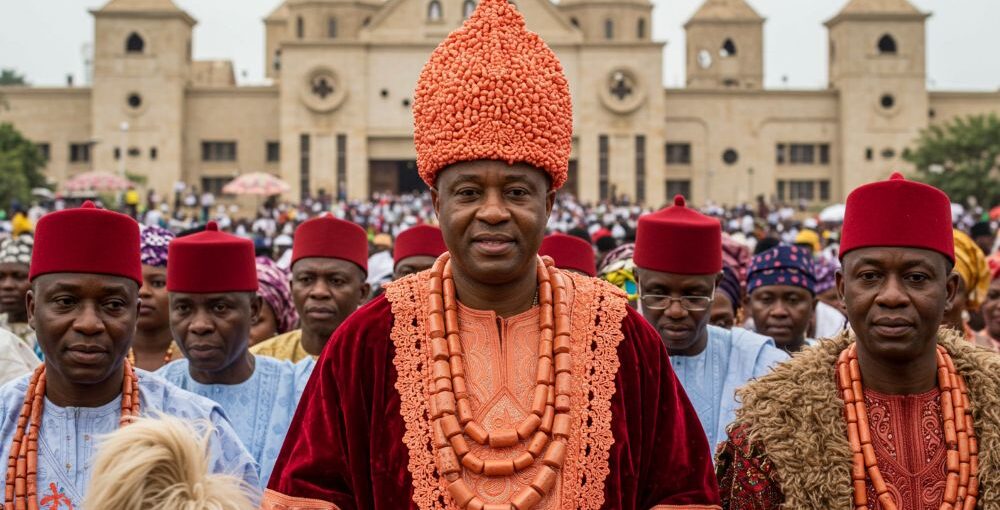Introduction: A Festival of Kings and Kingdoms
In the heart of Igbo land, where tradition still reigns and culture runs deep, the Ofala Festival stands as a majestic symbol of royalty, unity, and spiritual renewal. Held annually in towns like Onitsha and Nnewi, the festival honors the Obi (king)—not just as a ruler, but as the living embodiment of ancestral authority and communal harmony.
Rooted in both spiritual rites and regal display, the Ofala Festival reminds the Igbo people of the sacred bond between their leaders, their ancestors, and the land.
Historical Origins of Ofala
Derived from the Igbo phrase “Ofo Ala”, meaning “authority of the land”, the Ofala Festival traces back centuries to a time when kings were seen as custodians of divine order. Traditionally, it marks the end of the king’s period of seclusion and spiritual retreat, during which he prays, meditates, and renews his strength for leadership.
Upon reemerging, the king blesses the people and leads the community into a new cycle of prosperity and peace.
Core Features of the Ofala Festival
- 👑 The King’s Grand Entrance: The climax of the festival is the king’s appearance in full regalia—beaded crown, red cap, ivory staff—accompanied by chants, drummers, gun salutes, and jubilant cheers. It’s not just a royal walk; it’s a spiritual emergence.
- 🩰 Cultural Dance Troupes: Igbo dancers adorned in traditional costumes perform powerful, symbolic dances that narrate ancestral stories, community struggles, and triumphs.
- 🗣️ Title Holders and Chiefs Procession: Red-capped chiefs, ozo title holders, and elders march in line, signifying age-grade status, wisdom, and community trust.
- 💬 Blessings and Prophecies: The Obi delivers a speech, offering blessings, addressing community matters, and outlining visions for the future.
- 🧉 Rituals and Libations: Sacred offerings are made to the ancestors, and kola nuts are shared in a ritual that binds the living with the dead.
Ofala Across Igbo Land
While Onitsha hosts the most prominent Ofala under the Obi of Onitsha, several towns such as Nnewi, Aguleri, and Ukpo also celebrate their versions, tailored to their royal traditions. This variation speaks to the diversity within Igbo kingship while maintaining shared symbolic themes of authority, continuity, and identity.
Ofala in Modern Times
Today’s Ofala is not only a sacred ceremony but also a tourist attraction, drawing spectators from around the world. Nigerian celebrities, government officials, diplomats, and international media now attend, giving the festival global visibility.
It also serves as a platform for:
- Honoring community members and philanthropists
- Discussing community development plans
- Promoting Igbo art, fashion, and music
Conclusion: Living Royalty, Lasting Legacy
The Ofala Festival is more than an annual celebration—it is a renewal of spiritual order, a reaffirmation of identity, and a living preservation of Igbo culture. As Nigeria modernizes, the Ofala reminds the Igbo people and the world that true leadership is sacred, and cultural memory is not just to be remembered, but reenacted and revered.


